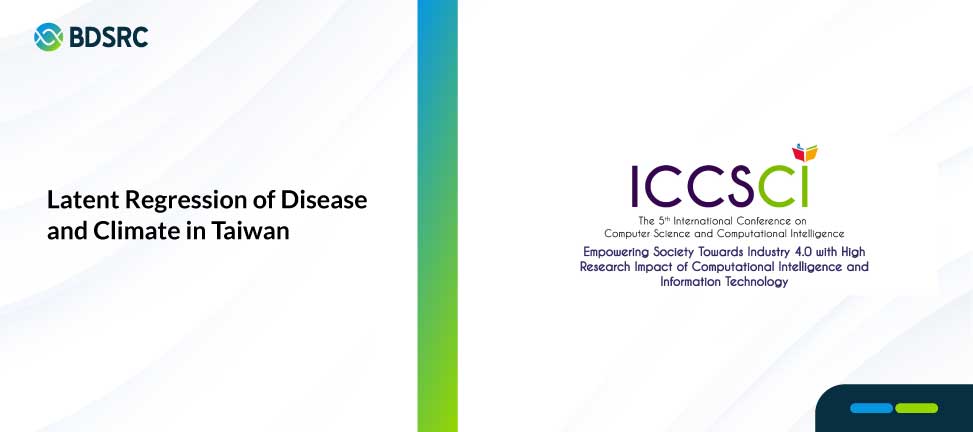Latent Regression of Disease and Climate in Taiwan

Global warming arising from climate change can increase the spread of deadly diseases. Effort is needed to develop a set of policies for the government to stem or reduce health risks from global warming. The purpose of this paper is to examine more detail and comprehensively about the relationship among climate and event disease count in Taiwan using the partial least square latent regression model. The results obtained that of the 17 types of diseases in Taiwan, that has the most significant loading factor is Amoebiasis, Malaria and Chikungunya. At the same time, climate variables that have the biggest most significant factor are Number day with max tem> 30, Number day Temp> 25, and Rainfall PH. Cronbach’s Alpha infectious disease 0.9696 and climate 0.2813. At the same time, the value of Dillon Goldstein’s rho infectious disease 0.974 and climate 0.6404, respectively.
International Conference on Computer Science and Computational Intelligence 2020
Rezzy Eko Caraka, Rung Ching Chen, Youngjo Lee, Prana Ugiana Gio, Arif Budiarto, and Bens Pardamean
